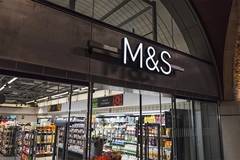
- Industry news
Industry news
- Category news
Category news
- Reports
- Key trends
- Multimedia
- Journal
- Events
- Suppliers
- Home
- Industry news
Industry news
- Category news
Category news
- Reports
- Key trends
- Multimedia
- Events
- Suppliers
DSM Growth Weighed Down by Weak Human Nutrition Performance

29 Apr 2015 --- DSM has reported sales of €1,886 million for Q1 2015, an 11% increase versus Q1 2014, due to 3% higher volumes, 1% lower prices and 9% foreign exchange effects. DSM delivered an increased EBITDA of €248 million compared to €239 million in Q1 2014. The increase in operating working capital of €199 million to €2,102 million at the end of Q1 2015 was entirely due to the foreign exchange translation effect. Cash operating working capital remained flat, contrary to usual seasonality.

Commenting on the results, Feike Sijbesma, CEO/Chairman of the DSM Managing Board, said: “DSM delivered higher results in Q1 2015 compared to prior year, driven by higher volumes in both Nutrition and Performance Materials. Nutrition delivered mixed results with good volume growth in animal nutrition, partly offset by low prices in vitamin E and weak performance in human nutrition. Performance Materials had another strong quarter with higher volumes and margins. The mix of foreign currencies had an overall positive impact on both clusters.”
“In Q1 we announced a partnership with CVC Capital Partners for Polymer Intermediates and Composite Resins, a significant step in further optimizing our portfolio and reducing our cyclicality. This strategic action will enable us to focus fully on improving the operational performance of our core businesses while capitalizing on the longer term potential for value creation of our various partnerships.”
“We are progressing well with setting up a number of efficiency improvement and cost reduction programs especially in Nutrition and in all support functions across the company. DSM aims to deliver an EBITDA in 2015 ahead of 2014, the increase mainly driven by positive foreign exchange effects.”
Nutrition sales in the first quarter increased by 15% compared to Q1 2014. Organic sales growth was 4% compared to Q1 2014 as a result of 3% higher volumes and 1% higher prices. Good volume growth in animal nutrition was partly offset by lower vitamin E prices and by weakness in human nutrition. Currencies had an 11% positive impact on sales.
EBITDA for Q1 was €195 million, down 4% from Q1 2014. Higher volumes in animal nutrition were offset by lower vitamin E prices, lower volumes in human nutrition, intensified marketing and sales activities as well as actions to reduce inventory levels. These factors and the relative higher share of animal nutrition impacted the EBITDA margin. Positive effects of foreign exchange rates, especially the US dollar, were partly offset by the negative impact of the Swiss franc.
Animal Nutrition and Health net sales were €574 million in Q1, a 23% increase versus the €467 million in Q1 2014. Organic sales growth in Q1 was 14%, entirely driven by higher volumes. This development reflects the continued positive growth momentum throughout 2014 versus a slow start in Q1 2014. Premixes showed strong growth and Tortuga continued to develop well and delivered a strong quarter.
Vitamin E prices were significantly lower compared to Q1 2014. This negative price effect of more than €20 million was compensated by higher prices for other ingredients. However, as a substantial part of these other ingredients are in-sourced for DSM’s premix activities and as such these increased prices only have a limited EBITDA effect.
Human Nutrition & Health net sales increased by 7% to €452 million versus €422 million in Q1 2014. Volumes declined 6% and prices were flat while currencies had a positive effect of 13%. However, compared to Q4 2014, Q1 showed a positive organic sales growth of 7%, breaking the trend of successive sales declines over the last three quarters of 2014.
The weakness in volumes was broadly across expected product categories, in particular low sales in fish oil based Omega 3 dietary supplements in the US. DSM is addressing organic growth in human nutrition with intensified marketing and sales activities and organizational changes.
Food & Beverage markets in developed economies as well as retail sales of vitamin-based dietary supplements in the US showed early signs of improvement. Volume growth in infant nutrition has normalized since Q4 2014, albeit at lower than historic growth rates. I-Health enjoyed strong sales growth.
DSM Food Specialties delivered a solid performance in Q1, with good organic growth in enzymes and cultures. Issues around manufacturing performance in savory ingredients and cultures reported in Q4 2014 have been resolved.
The steps DSM is taking to address the ongoing challenging external environment, including a focus on operational performance and enhancing profitability, are going to plan. DSM is progressing well with setting up a number of efficiency improvement and cost reduction programs, especially in Nutrition and across all support functions of the company. In addition, in 2015 further focus will be given to improve operating working capital management.
In terms of outlook, DSM reported that macro-economic uncertainty and low consumer confidence continue to impact market dynamics. DSM assumes low growth in Europe, continued economic resilience and growth in the US and a slowdown of growth in some of the high growth economies.
Assuming current low spot prices in vitamin E persist, the negative price impact on DSM’s 2015 EBITDA will be around €80 million compared to 2014.
The volatility in currencies, including the strengthening of the Swiss franc and the US Dollar against the Euro, will have a mixed effect on DSM’s 2015 results compared to 2014. Based on current exchange rates and the 2015 hedge effects, an overall annual positive impact on 2015 EBITDA is estimated at approximately €45 million, should current rates persist throughout the remainder of the year.
Taking the above into account, DSM aims to deliver an EBITDA in 2015 ahead of 2014, the increase mainly driven by positive foreign exchange effects.










